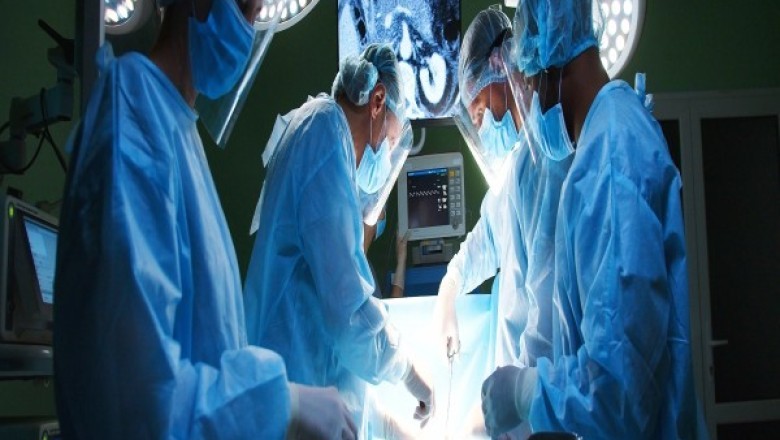views
Organ Donation and Transplantation Process
The process of organ donation and transplantation is a complex one involving many medical professionals. When a person passes away and has designated themselves as an organ donor, their organs can potentially be recovered to save other lives through transplantation. The first step is for organ procurement organizations to work with hospitals to evaluate donor eligibility. Tests are done to assess which organs are viable for transplant based on the person's medical history and cause of death.
Once viable Organ Transplant are identified, the organ procurement team will discuss the opportunity for donation with the donor's family to get consent. Tissue and organ samples are then rapidly transported to transplant centers where recipients are waiting. Surgeons and transplant teams are alerted and prepare for operations. Coordinating the matching of donor organs to those on the waiting lists is an intricate process with many logistical factors to consider like blood type, size and medical urgency.
If all goes according to plan, surgery can begin within hours. The donor organs are carefully removed by the procurement team and rushed to the transplant centers by plane, helicopter or vehicle. There, recipient surgeries take place to implant the new organs. Post-operation care and anti-rejection medications are crucial to monitor organ function and recipient health in the critical days, weeks and months following a transplant.
Types of Organs That Can Be Transplanted
While other tissue and cell transplants exist, the most common organ transplant procedures involve:
Kidney - As of 2019, over 100,000 people in the U.S. were on the kidney transplant waiting list. Dialysis is required until a kidney transplant but the new organ can restore much better quality of life.
Liver - For end-stage liver diseases, transplantation offers the only cure. Parts of a liver from a living donor can be used while deceased donors provide whole liver transplants.
Heart - For many types of heart disease and failure, a heart transplant may be the best or only treatment option to prolong life. Post-surgery medications are vital to prevent rejection of the new heart.
Lungs - Lung transplants are performed for conditions such as cystic fibrosis, pulmonary fibrosis and emphysema. Either a single lung or double lung procedure from deceased donors can be done.
Pancreas - Most pancreas transplants are performed simultaneously with a kidney transplant to treat type 1 diabetes and kidney failure.
Intestine - For short bowel syndrome or other intestinal failure conditions, multivisceral transplants of the intestine along with other organs may be necessary.
Tissue and Organ Availability vs. Need
One of the biggest challenges facing transplantation is the shortage of donated organs and tissues available versus the high number of people waiting. In the U.S. in 2020, there were over 100,000 candidates on the national transplant waiting list but only about 36,500 transplants were actually performed according to government data. The gap between available organs and medical need continues to widen each year.
Unfortunately, many people die waiting for an organ offer due to this shortage. In 2020 alone, over 6,000 people in the U.S. died before receiving a life-saving transplant according to public registry data. This organ deficit means some candidates endure waits ranging from months to years for a suitable match. For highly sought after organs like livers, waits of a year or more are not uncommon.
Risks and Success of Transplant
While transplantation offers hope for significantly improved quality of life compared to waiting for an organ, it is a major medical procedure with risks both during surgery and long term. Complications that may occur intraoperatively include hemorrhage, infection and technical surgical problems. Post-transplant, the biggest threat is rejection where the recipient's immune system sees the new organ as foreign and attacks it.
Lifelong anti-rejection medications are necessary to suppress the immune response and spare the transplanted organ. These drugs come with their own side effects and risks too such as increased infection susceptibility, cardiovascular issues, diabetes and certain cancers. Transplanted organs also have a limited lifespan themselves ranging from 10-25+ years depending on the organ and individual case.
Despite the challenges, success rates for organ transplantation have greatly increased in recent decades thanks to advances in medicine, technology and immunosuppressive protocols. One-year survival rates are now over 90% for kidney transplants from living donors and around 85% for deceased donor kidneys. Five-year rates are over 80% and 70% respectively. As long as rejection is avoided and the individual adheres to the medication plan, transplanted organs can extend and enhance life for many recipients.
Organ Transplantation - Saving Lives, Giving Hope
In summary, organ transplantation has become an established lifesaving medical option for end-stage organ failure through the gift of donation. Coordinated efforts between hospitals, procurement organizations, transplant centers, doctors and patients work to match donor organs with those on waiting lists despite ongoing shortages. While transplants are complex surgeries with inherent risks long term, they provide recipients with far better prospects than ongoing medical management alone. Ongoing research also works to find ways to increase organ availability as transplantation remains one of the most significant advances in modern medicine.
Explore More Related Article On- Surgical Robots Market
For Deeper Insights, Find the Report in the Language that You want.
About Author:
Money Singh is a seasoned content writer with over four years of experience in the market research sector. Her expertise spans various industries, including food and beverages, biotechnology, chemical and materials, defense and aerospace, consumer goods, etc. (https://www.linkedin.com/in/money-singh-590844163)






















Comments
0 comment